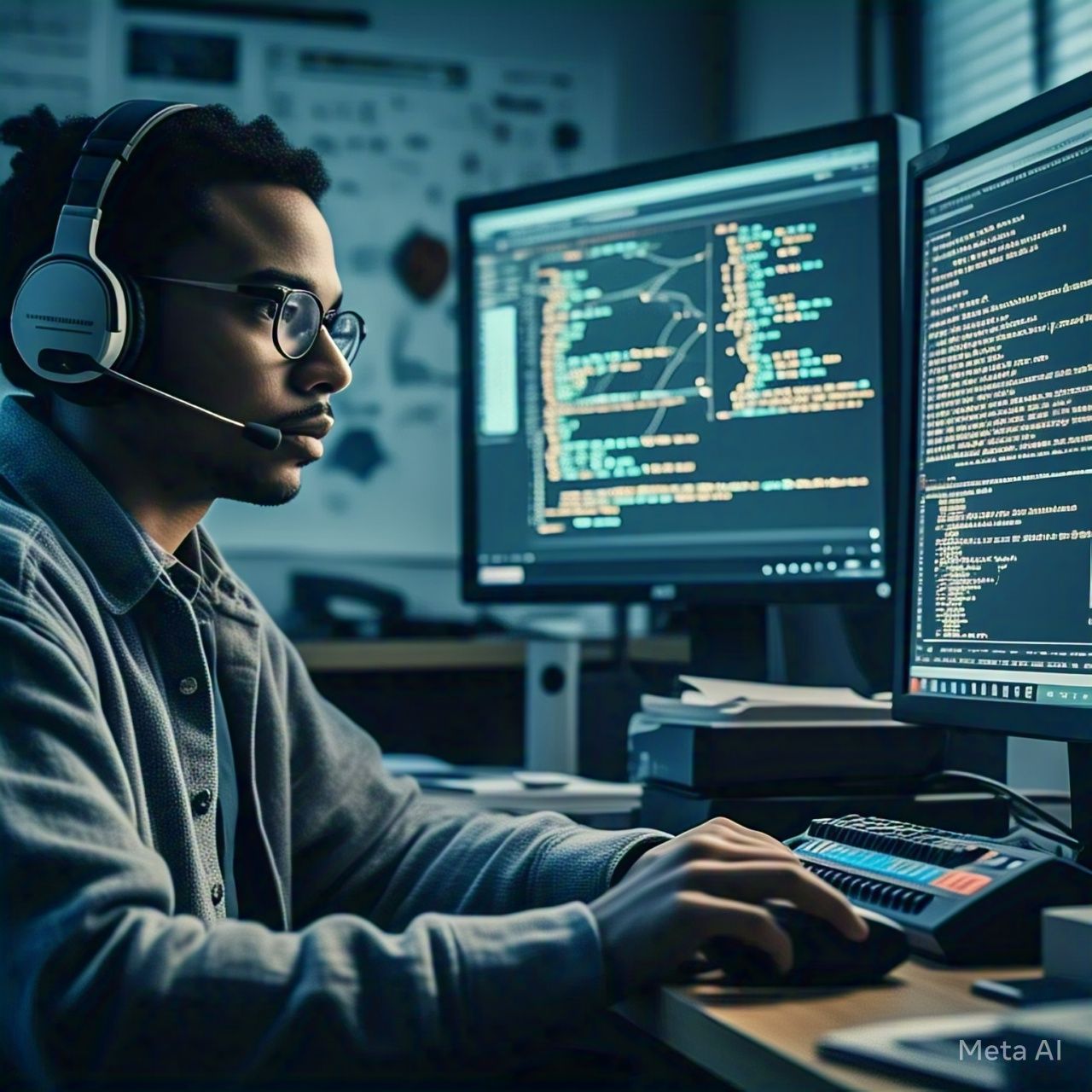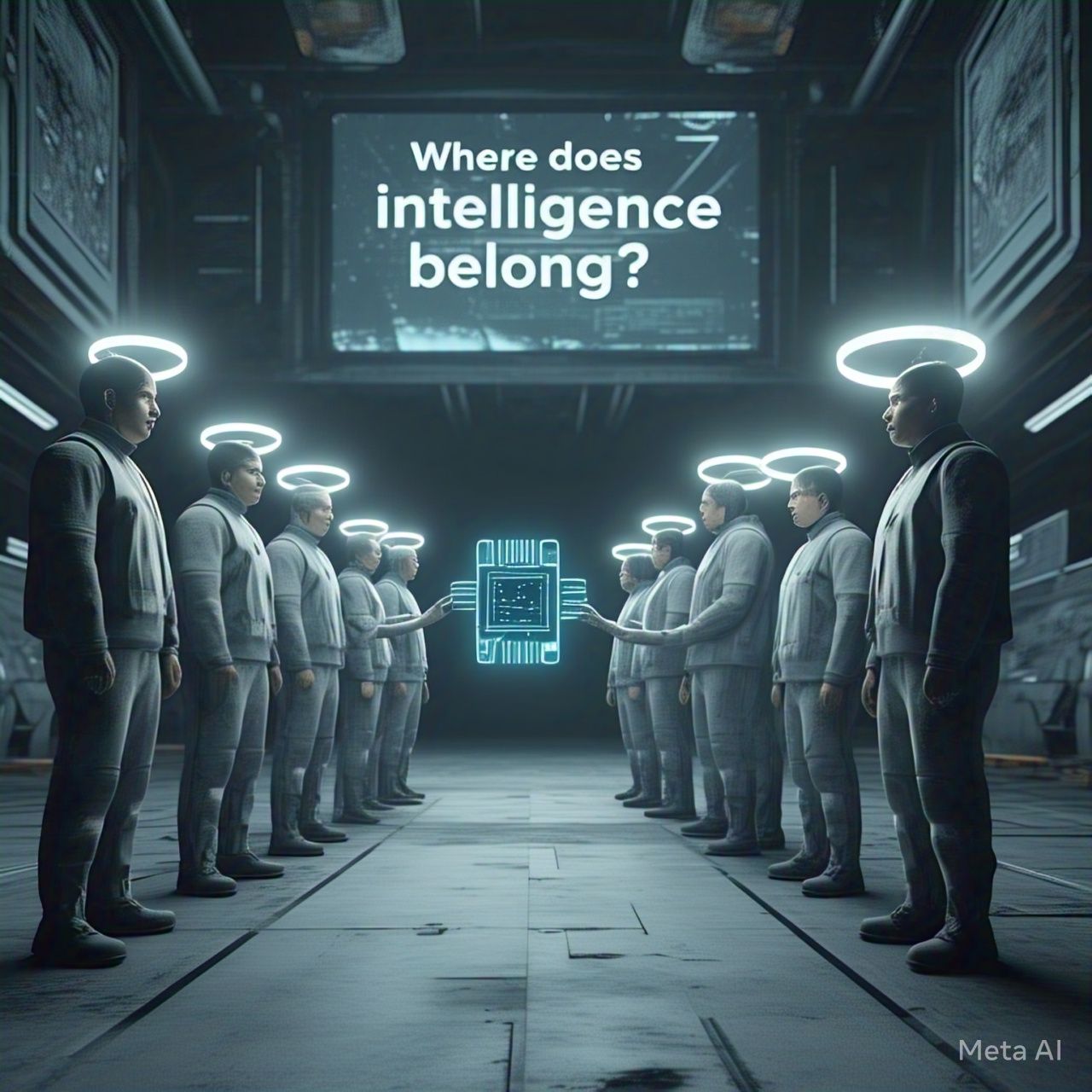Table of Contents
- Introduction
- What is Social Engineering?
- How AI Enhances Social Engineering
- Real-World Examples of AI-Driven Manipulation
- The Ethical Dilemma: AI and Psychological Influence
- Could AI Be Used for Mass Manipulation?
- How Can AI Manipulate Human Behavior?
- The Role of AI in Political and Economic Influence
- How to Prevent AI from Being Used for Social Engineering
- Conclusion
- FAQs
Introduction
Artificial Intelligence (AI) is rapidly advancing, improving automation, decision-making, and even human interaction. However, this progress raises a significant ethical question: could AI be used to manipulate human behavior? With its ability to analyze data, learn from interactions, and adapt its responses, AI has the potential to influence individuals in ways previously thought impossible.
In this article, we will explore how AI-driven social engineering could affect individuals and society, real-world examples of AI manipulation, and how we can safeguard against the misuse of AI in psychological and behavioral influence.
What is Social Engineering?
Social engineering refers to psychological manipulation techniques used to deceive individuals into revealing confidential information or making decisions that may not be in their best interest. Traditionally used by cybercriminals and fraudsters, social engineering has evolved with technology, and AI is now at the forefront of its potential expansion.
Some traditional forms of social engineering include:
- Phishing: Deceptive emails or messages designed to trick individuals into disclosing personal information.
- Pretexting: Creating a fabricated scenario to obtain information.
- Baiting: Offering something enticing to lure victims into a trap.
- Impersonation: Posing as a trusted individual or organization to gain access to sensitive data.
With AI, these techniques can be executed at an unprecedented scale and sophistication.
How AI Enhances Social Engineering
AI’s ability to process massive datasets, recognize patterns, and personalize interactions makes it a powerful tool for social engineering. Some ways AI enhances psychological manipulation include:
- Automated Personalization: AI can tailor messages based on an individual’s interests, habits, and online behavior.
- Deepfake Technology: AI-generated videos and audio can convincingly mimic real people, deceiving individuals into believing false information.
- Chatbots and Conversational AI: AI-driven chatbots can engage in persuasive conversations to extract sensitive information.
- Behavioral Prediction: AI can analyze user behavior to predict and influence decision-making processes.
These capabilities make AI a double-edged sword—useful for business and marketing but potentially dangerous in the wrong hands.
Real-World Examples of AI-Driven Manipulation
Several cases have demonstrated how AI can be used to influence human behavior:
1. Cambridge Analytica Scandal
AI-driven data analysis helped political campaigns target individuals with personalized messages, influencing voter behavior in major elections.
2. Deepfake Scams
Cybercriminals have used AI-generated deepfake videos to impersonate executives and authorize fraudulent transactions.
3. AI-Powered Chatbots in Propaganda
Automated bots on social media platforms have been used to spread misinformation and manipulate public opinion.
These examples highlight the risks associated with AI’s influence on society and the need for stringent regulations.
The Ethical Dilemma: AI and Psychological Influence
The use of AI in influencing human behavior raises several ethical concerns:
- Consent: Are people aware they are being manipulated by AI?
- Autonomy: Does AI-driven manipulation undermine free will?
- Accountability: Who is responsible for AI’s actions—developers, users, or companies?
Balancing AI’s potential benefits with ethical considerations is crucial to preventing its misuse in social engineering.
Could AI Be Used for Mass Manipulation?
AI’s ability to process and analyze vast amounts of data makes it a powerful tool for large-scale psychological manipulation. Governments, corporations, and malicious actors could use AI to:
- Influence elections and political decisions.
- Shape consumer behavior to maximize profits.
- Spread misinformation and propaganda.
- Control public perception through algorithm-driven content curation.
These capabilities raise concerns about AI being weaponized for mass psychological control, affecting democratic processes and personal freedoms.
How Can AI Manipulate Human Behavior?
AI can influence human decision-making in subtle yet powerful ways:
- Algorithmic Bias in Social Media: AI curates content based on user behavior, reinforcing existing beliefs and creating echo chambers.
- AI-Powered Advertising: Hyper-targeted ads can subtly shape consumer choices.
- Emotionally Intelligent AI: AI systems that recognize and respond to emotions can exploit psychological vulnerabilities.
- AI-Generated Fake News: AI can create and spread convincing false narratives, influencing public opinion.
- Persuasive Chatbots: AI chatbots can engage in prolonged, realistic conversations that subtly nudge users toward certain actions.
These methods demonstrate AI’s potential to shape behavior without individuals even realizing it.
The Role of AI in Political and Economic Influence
AI is increasingly used in politics and business to influence human decisions:
- Political Campaigns: AI-driven data analysis enables hyper-personalized political messaging.
- Stock Market Manipulation: AI algorithms can predict and influence trading behaviors.
- Employment and Hiring Bias: AI-driven recruitment systems may favor certain demographics based on biased data.
- Consumer Behavior Prediction: AI-driven recommendation engines influence what people buy, watch, and read.
While these applications can be beneficial, they also pose ethical dilemmas regarding fairness, bias, and consent.
How to Prevent AI from Being Used for Social Engineering
To mitigate the risks of AI-driven manipulation, the following measures should be implemented:
1. Transparency and Regulation
- Governments should enforce laws requiring companies to disclose AI-driven persuasion techniques.
- Social media platforms should label AI-generated content to prevent misinformation.
2. Ethical AI Development
- Developers must incorporate ethical guidelines to ensure AI respects human autonomy.
- AI systems should undergo audits to detect and remove biases.
3. Public Awareness and Education
- Individuals should be educated on how AI influences decision-making.
- Organizations should implement digital literacy programs to help people recognize AI-driven manipulation.
4. AI Safeguards and Detection Tools
- Implement AI-driven solutions to detect and counteract social engineering attacks.
- Develop AI models that prioritize fairness and transparency.
By implementing these safeguards, we can prevent AI from being misused as a tool for psychological manipulation.
Conclusion
AI has the potential to revolutionize industries and enhance human lives, but it also poses risks in the realm of social engineering. As AI becomes more advanced, ensuring that it is used ethically and transparently is crucial.
By understanding the dangers of AI-driven manipulation and taking proactive measures to regulate and control its influence, we can safeguard human autonomy and ensure AI remains a force for good rather than a tool for deception.
FAQs
1. Can AI actually manipulate human behavior?
Yes, AI can influence human behavior by analyzing data, personalizing content, and using persuasive techniques to shape decisions.
2. How can AI be used in social engineering attacks?
AI enhances traditional social engineering tactics by automating phishing attacks, generating deepfakes, and predicting user vulnerabilities.
3. Are there laws regulating AI-driven manipulation?
Some governments are working on AI regulations, but global standards are still in development.
4. How can individuals protect themselves from AI manipulation?
Being aware of AI-driven tactics, verifying information sources, and using digital literacy skills can help protect against AI influence.
5. Can AI be used for ethical influence?
Yes, AI can be used for positive influence, such as promoting public health initiatives and spreading awareness of important social issues.
By remaining vigilant and advocating for ethical AI development, we can harness its potential while minimizing its risks.



